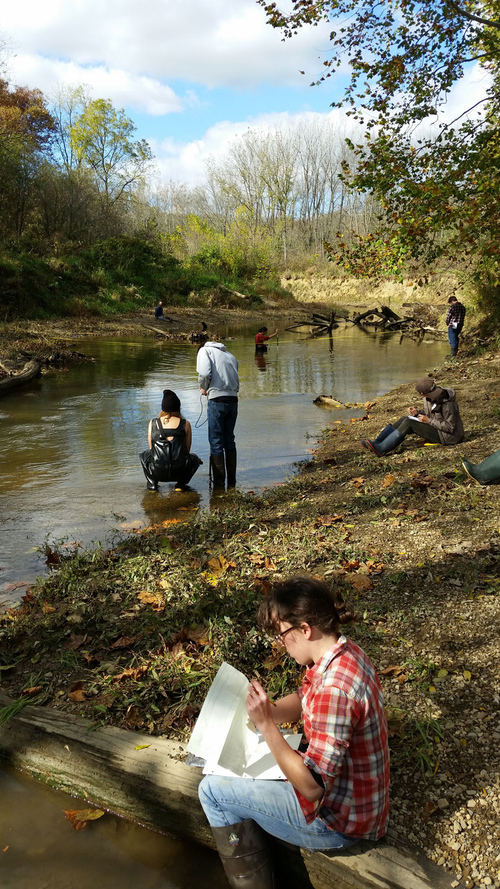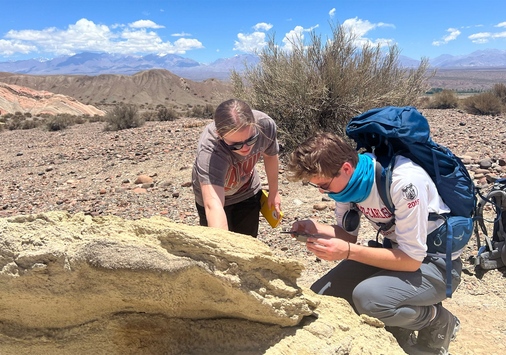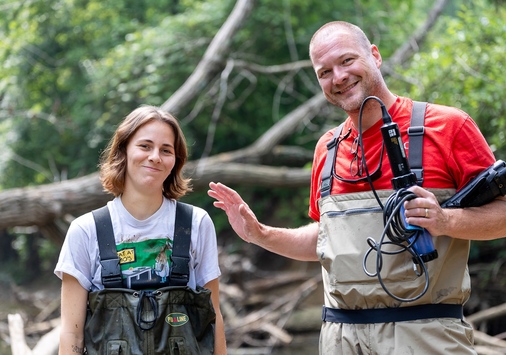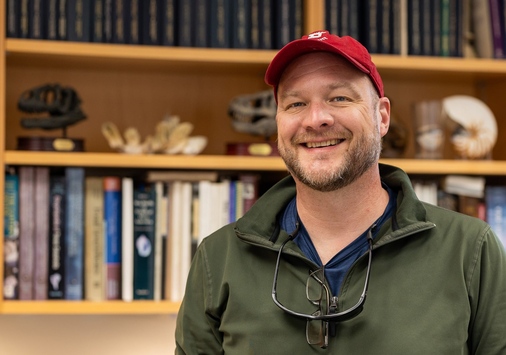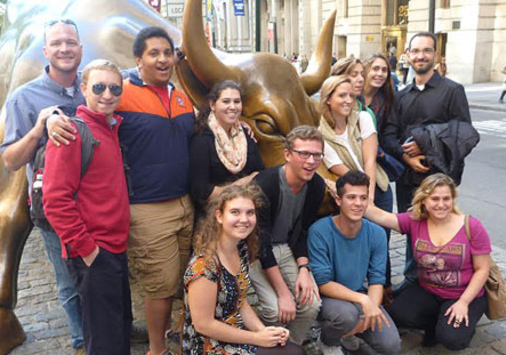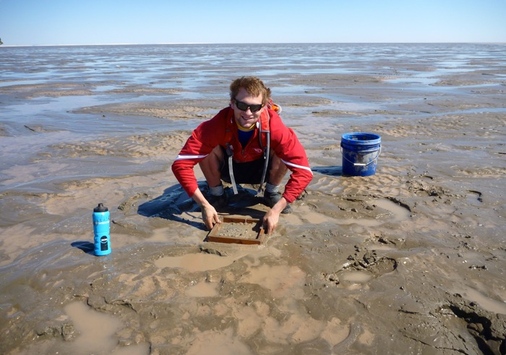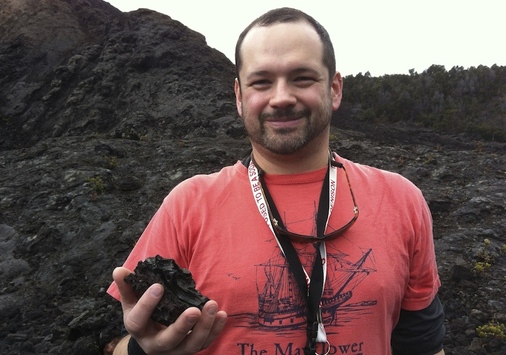About
Denison’s Earth and Environmental Sciences program is unique
- Amazing faculty give you the tools you need to make a positive impact on our home planet by exploring the Earth through the natural sciences, including earth science, physics, chemistry, and biology, as well as computer science and data analytics.
- The STEM-focused majors within the department will take you anywhere in the world you want to go. You can apply the knowledge and methods you’ll learn no matter where life takes you.
- The department is based in the Olin Science Center. Our state-of-the-art lab facilities include a fallout nuclide detector, laser particle size analyzer, scanning electron microscope, seismometers, stable isotope and biogeochemistry sampling equipment, petrographic imaging systems, large format map plotter, and an enormous collection of minerals, rocks and fossils.
Curriculum
We seek to understand how Earth and the environment have evolved and continue to evolve, how Earth systems, including human agents, interact to produce the environment in which we live, and how present and future changes may impact the habitability of Earth.
Access information from a cross-section of disciplines as you learn about the Earth and environmental sciences. Earth science, physics, chemistry, biology, mathematics, computer science, anthropology, and data analytics provide evidence-based, robust knowledge to understand the processes that shape the Earth, and the impacts those processes have on humans, other organisms, and the environment.
Majors are encouraged to conduct primary research with their faculty. Commonly these research projects culminate in presentations at national and international scientific meetings. Some projects even result in peer reviewed publications with student and faculty co-authors.
Outside the Classroom
Each semester, the department takes multi-day trips to explore earth and environmental science concepts and issues in the field. These trips include regional, national, and international destinations. Recent regional trips include New England, the Atlantic and Gulf coasts, and the central and southern Appalachians. We also regularly travel to the western US (e.g., Arizona, California, Nevada) and Hawaii. Recent international field trips have visited the Bahamas, Costa Rica, and Canada.
Our field trips, which involve spending several days together off-campus, working on a common problem, give our students opportunities to develop close bonds with each other and with our faculty. Denison alumni have recognized the importance of these field studies to their own careers and have provided generous funds to help subsidize these life-changing experiences, making them financially available to all Earth and environmental science majors and minors.
During the summers, students have opportunities to conduct paid research with faculty mentors on geologic and environmental research projects. students can also take part in internships in a wide variety of industries, including state and federal agencies (e.g., National Park Service), natural history museums, and private environmental firms. All majors participate in a senior seminar that focuses on a specific Earth and Environmental Science question or subject area under collective guidance of members of the department’s faculty.
What do Earth and Environmental Sciences majors do after Denison?
Our majors will graduate with a STEM degree and have an abundance of opportunities to work in almost any relevant field, and careers in the environmental industry in particular are growing. Graduates may choose to help develop clean, green, renewable energy that will support movement away from fossil fuels. They might also pursue careers in natural hazard mitigation and planning. They might also choose research topics that focus on environmental change, or to study how the changing climate impacts plant and animal life.
The department offers four degree possibilities: a Bachelor of Science in Earth Science, a Bachelor of Science in Environmental Science, and a Bachelor of Arts in Earth Science, and minor in Earth Science.
Nonmajors benefit from learning methods of scientific inquiry and developing a broad and deep knowledge of the Earth and its environment that will serve their needs as citizens and future community leaders.
